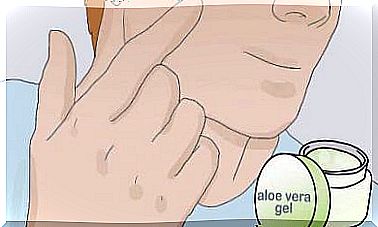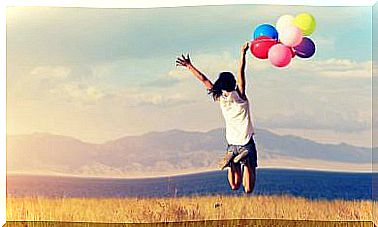Anxiety After Waking Up: Causes And Treatment
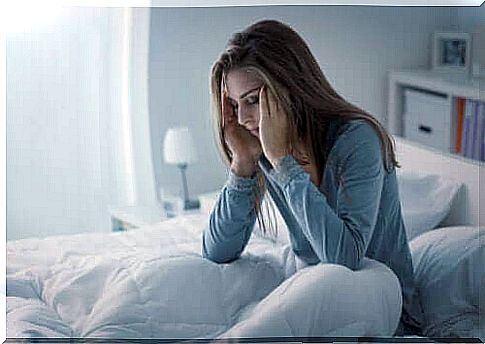
Anxiety when you wake up is experiencing unpleasant physical and mental symptoms as soon as you get out of bed, especially in the morning.
If these symptoms drag on, they negatively affect your mood. That is why it is worth getting to know their causes and methods of treatment.
What is anxiety?
According to the American Psychological Association, anxiety is a feeling characterized by somatic tension. It is experienced when there is a threat of danger, catastrophe or misfortune.
It is one of the most common emotional states that activates the body’s defenses. A certain degree of anxiety is desirable in order to face the daily challenges. It provides the stimulus needed to solve problems.
However, this feeling becomes pathological when it exceeds a certain degree of intensity or loses its adaptive function. In such cases, it results in malaise, the symptoms of which affect the physical and mental state.
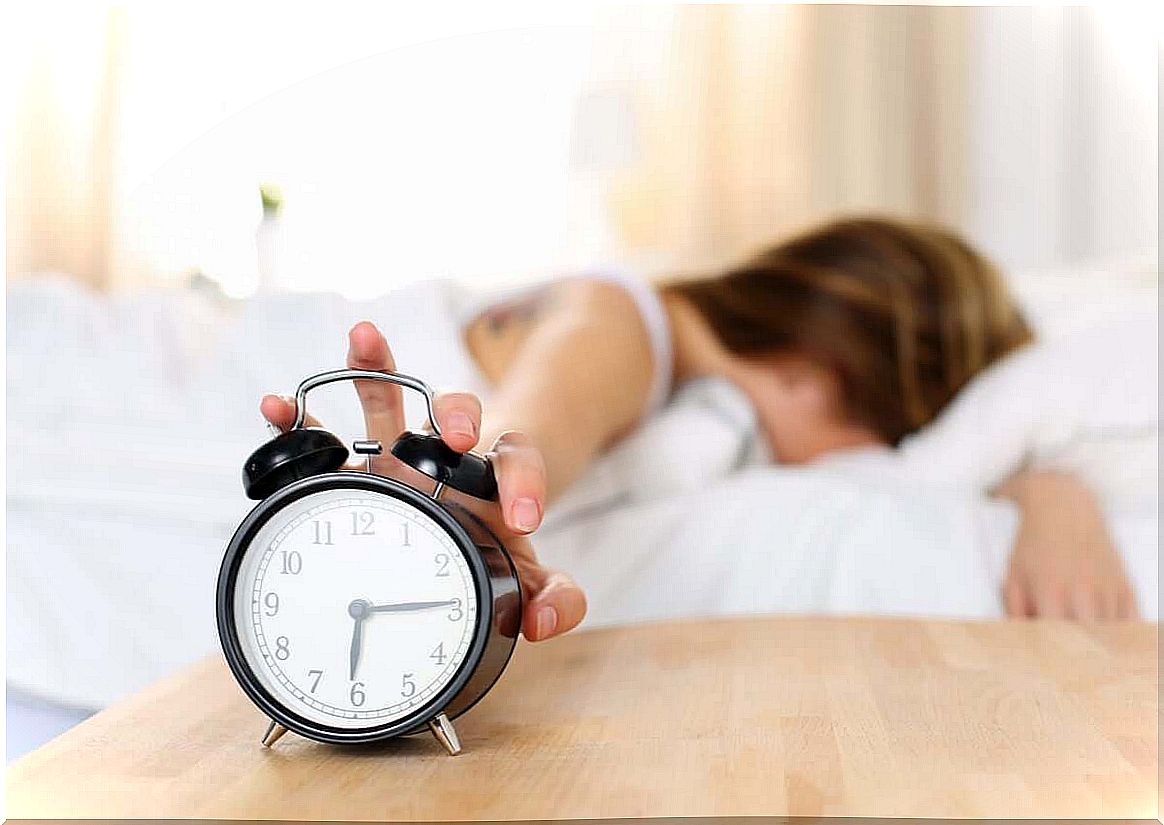
Anxiety and fear
Both anxiety and fear appear similar in that they cause danger thinking, worry, physiological responses, and somatic responses. They can be confused with each other.
However, the difference is that fear appears in the presence of a specific stimulus, for example, when in contact with a wild animal. On the other hand, anxiety occurs when anticipating a threat that is undefined and unpredictable.
Symptoms of anxiety upon waking
Not everyone experiences anxiety on awakening the same way. Its intensity depends on the biological and psychological conditions of the individual. Symptoms can be divided into physical, mental, behavioral and cognitive.
Physical symptoms
One of them is tachycardia, heart palpitations and a feeling of tightness in the chest. Added to this is the feeling of being overwhelmed, excessive sweating and tingling or trembling of the limbs.
Gastric problems also happen frequently. Nausea and vomiting, stomach pain and acid reflux are common symptoms.
Mental symptoms
The psychological symptoms of anxiety after waking up include:
- Sense of danger: or of undefined danger.
- Feeling separated from yourself: known as depersonalization.
- Fear of death: Fear of losing control of your own life.
- Difficulty making decisions.
Behavioral symptoms
Somatic restlessness and nervousness are common symptoms that appear as soon as you wake up. They may be accompanied by a tense posture and jaw stiffness, leading to bruxism.
Cognitive symptoms
Cognitive symptoms include difficulty concentrating in the first hours after waking up. This has to do with over-worrying about how the day will turn out and negative thoughts.
People with anxiety feel confused. From getting out of bed, they negatively interpret events in their surroundings and news from the world.
The causes of anxiety upon waking
Anxiety after waking up is the result of many factors, including biological, psychological and social aspects. It is worth noting that the causes may differ depending on the individual. The most common of these are as follows:
- Biological: genes play an important role here. A biological predisposition increases the risk of panic attacks.
- Psychosocial: stressful situations (family, relationship, or work problems) can lead to anxiety. Then action at the private level is not enough to deal with the problem.
- Traumatic experiences: Traumas from accidents, natural disasters, seizures, and abuse cause changes in the brain that lead to bouts of anxiety.
- Dreams: Nightmares can be another cause of anxiety when you wake up. Then the individual experiences a feeling of danger, which after waking up is difficult for him to separate from reality. Sometimes there may be doubts as to what is reality and what is dream.
How to relieve anxiety when you wake up?
Depending on the intensity and frequency of anxiety episodes, it is worth seeking psychological help after waking up. It is possible that the cause is a disorder that requires therapy or medication.
Relaxation techniques after waking up
Relaxation exercises help to relieve anxiety symptoms and let go of negative thoughts. Over time, they can even be completely replaced.
Deep breaths
Shallow breathing can lead to hyperventilation, which causes anxiety-like physical symptoms. These include nausea, dizziness, palpitations, and feeling overwhelmed.
When the body is relaxed, it breathes deeper through the diaphragm. Proper breathing therefore helps to control anxiety.
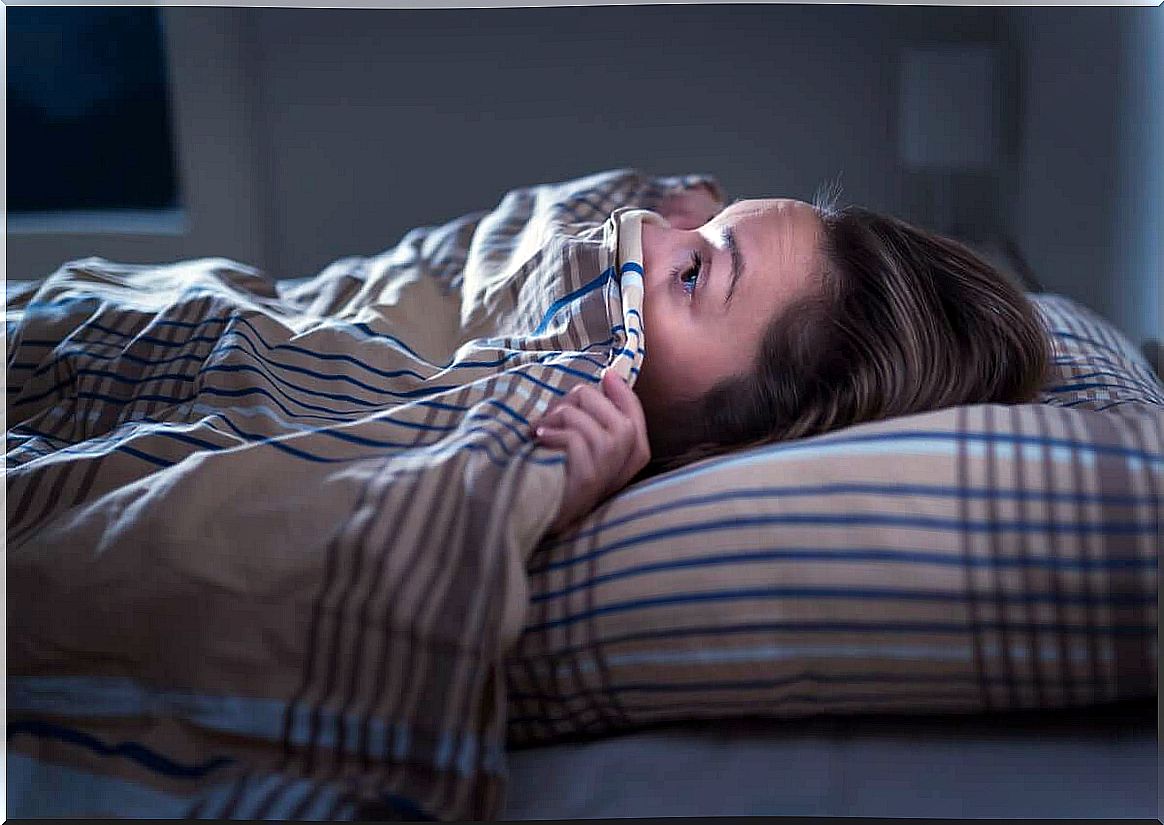
Yoga and meditation
Meaning yoga helps you calm down. Moreover, it provides the tools to achieve unity of body and mind. This translates into greater control over the symptoms of anxiety.
In addition, it helps to relax the muscles as it requires holding specific positions followed by relaxation.
Meditation is a practice that allows you to free yourself from thinking about the past and future and focus on the here and now. Therefore, it allows you to control your mind and reject negative thoughts.
Avoiding coffee and alcohol
Certain substances increase fears of anxiety. These include alcohol and caffeine. Reducing their consumption helps to relieve anxiety upon waking.
The anxiety after waking up can be overcome
Although for some people the ailment is so bothersome, the problem of anxiety after waking up can be solved with both therapy and home remedies. It is worth meditating and taking care of peace in the evenings to ensure optimal rest.
Consult a specialist if in doubt. Anxiety destroys the body and interpersonal relations, which translates into other spheres of life, including family and work. The sooner she reacts to him, the better.
